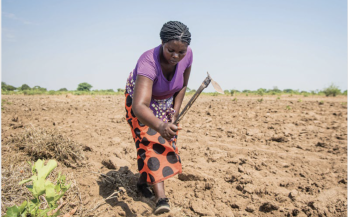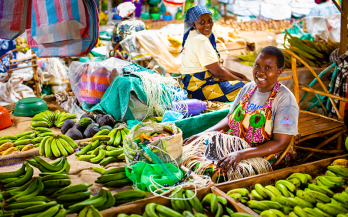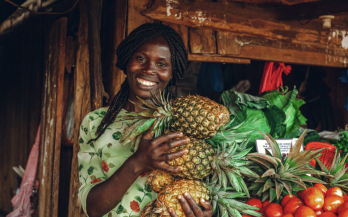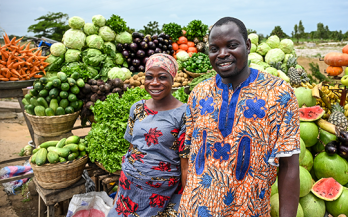- 29/08/2025
Zambia has demonstrated strong political commitment to food systems transformation while grappling with persistent systemic vulnerabilities that threaten progress toward sustainable food and nutrition security.
As a landlocked country in southern Africa with a population largely dependent on climatesensitive smallholder agriculture, Zambia faces the urgent imperative to build resilience while addressing deep-rooted challenges of malnutrition, poverty, and environmental degradation.
- 28/08/2025
The Countdown then undertook a consultative process to select a set of 50 indicators across these themes, which constitutes the global indicator framework. The Countdown publishes annual monitoring updates and additional analysis to support the transformation of food systems so they become equitable, sustainable, and resilient and positively contribute to achieving the 2030 SDGs and other global goals.
- 25/07/2025
Kenya’s engagement in food systems transformation reflects a strong policy commitment and growing political will to address persistent food and nutrition security challenges. This ambition is evident in progressive national frameworks such as the National Food and Nutrition Security Policy (2011), Agricultural Sector Transformation and Growth Strategy (2019–2029), Agricultural Soils Management Policy (2023), and the newly launched National Agroecology Strategy for Food System Transformation (2024–2033).
These strategies are aligned with global and regional commitments, including the Sustainable Development Goals (SDGs), the Paris Agreement on climate change mitigation, and the Malabo Declaration on comprehensive African agricultural development, signalling Kenya’s intention to lead in advancing climateresilient and equitable food systems.
- 25/07/2025
Nigeria stands at a critical juncture in its food systems transformation journey. As Africa’s most populous nation with over 225 million people, Nigeria has demonstated significant political commitment to food systems transformation, explicitly embedding goals in its National Pathways to Food Systems Transformation and developing comprehensive policy frameworks following the 2021 United Nations Food Systems Summit.
The country’s engagement in global food systems transformation efforts led to the development of an implementation strategy for the National Pathways to Food Systems Transformation, coordinated by the Federal Ministry of Budget and Economic Planning, which serves as the National Convenor for this agenda.
Food systems are a foundation of human and planetary well-being and central to achieving the Sustainable Development Goals. Yet they also contribute to ill health, inequity, environmental degradation, and greenhouse gas emissions. These challenges demand urgent food systems transformation. Such a transformation requires understanding the status of food systems across their diverse functions.
- 13/12/2023
Food systems are a foundation of human and planetary well-being and central to achieving the Sustainable Development Goals. Yet they also contribute to ill health, inequity, environmental degradation, and greenhouse gas emissions. These challenges demand urgent food systems transformation. Such a transformation requires understanding the status of food systems across their diverse functions.





